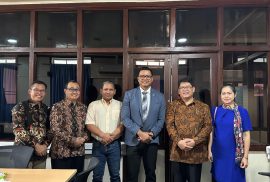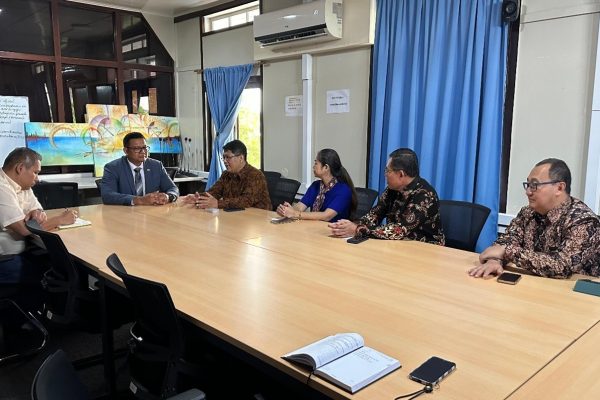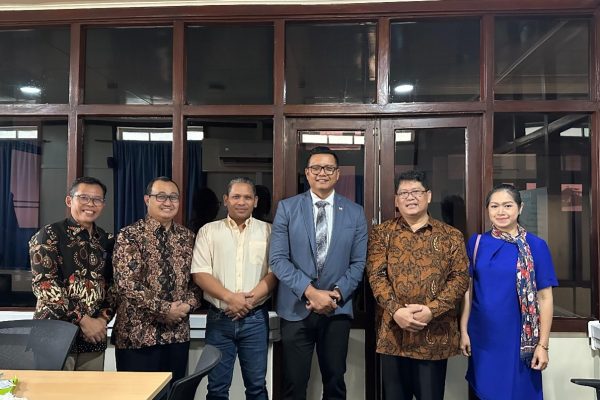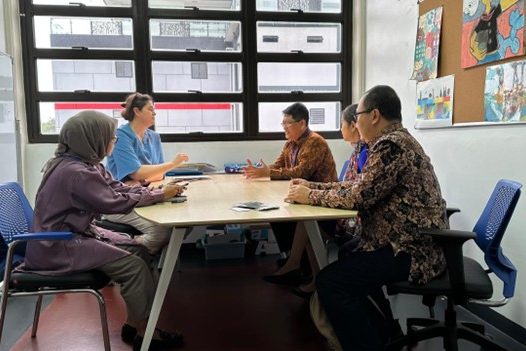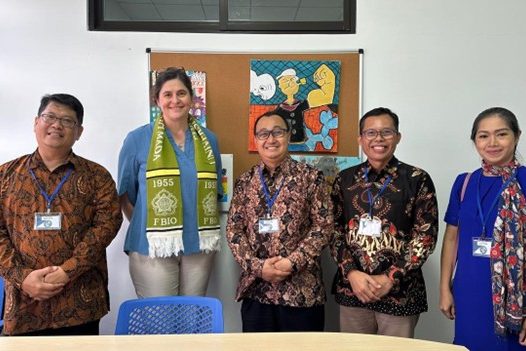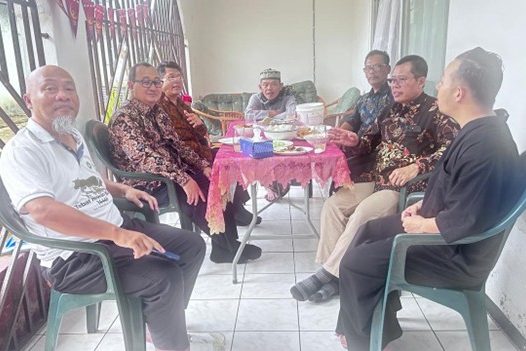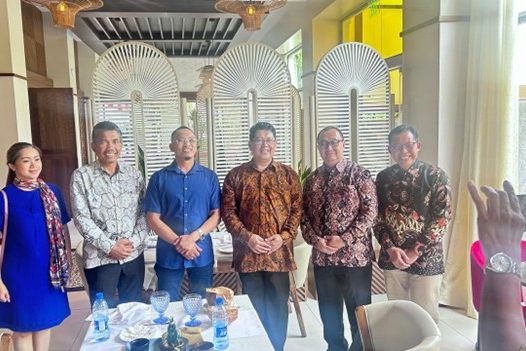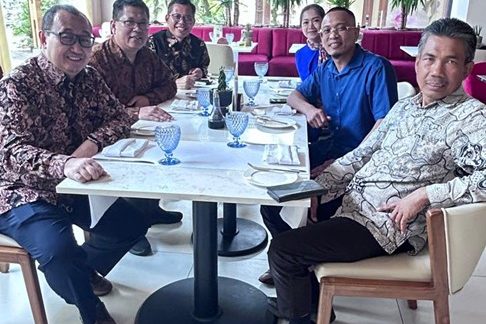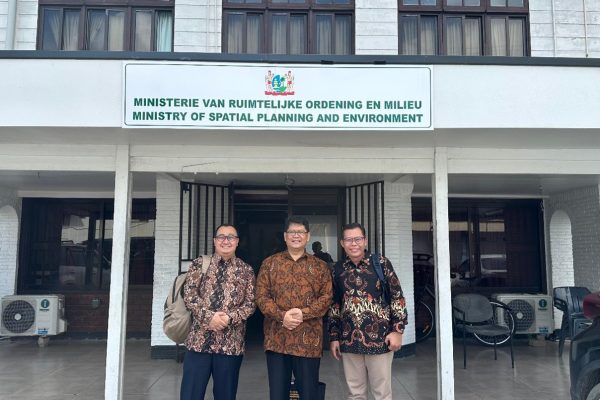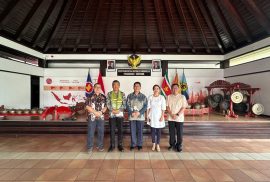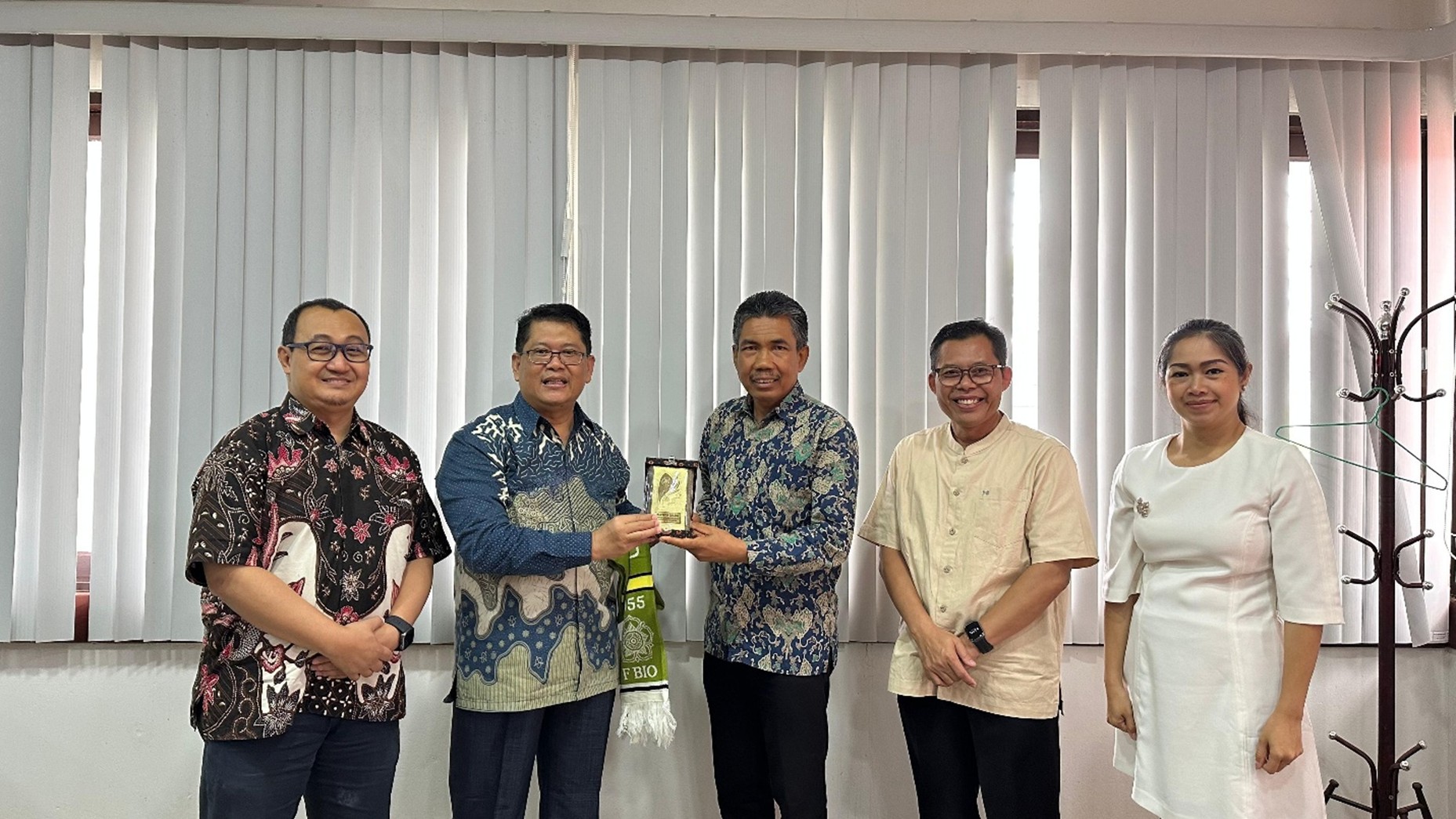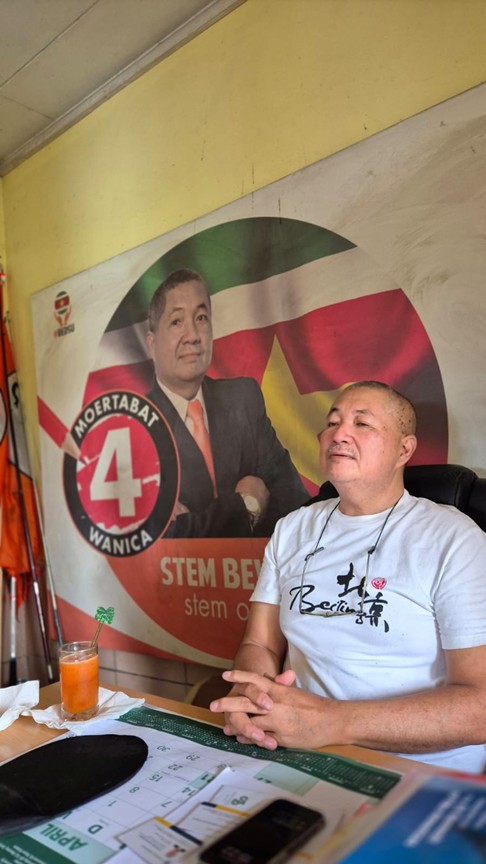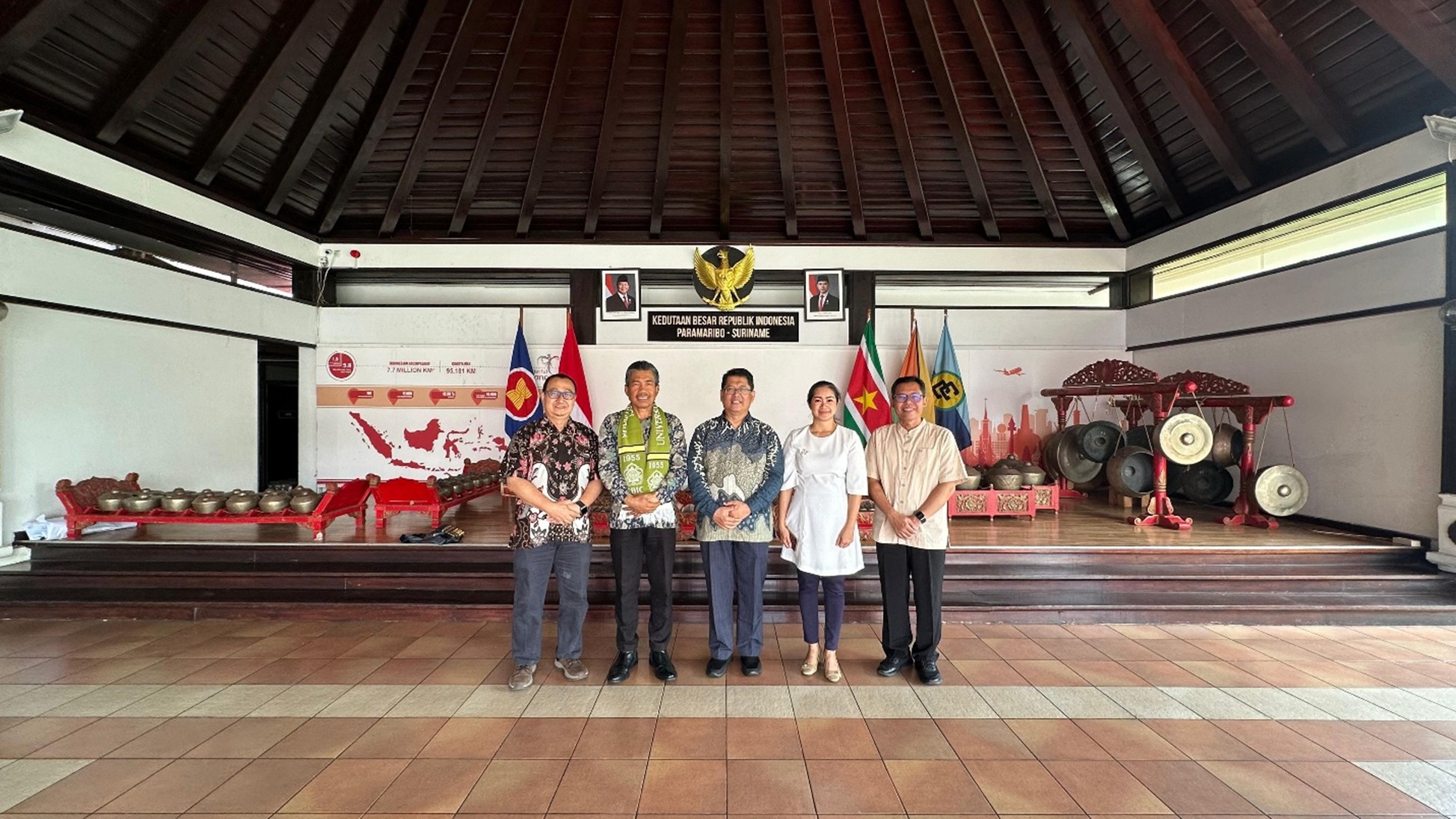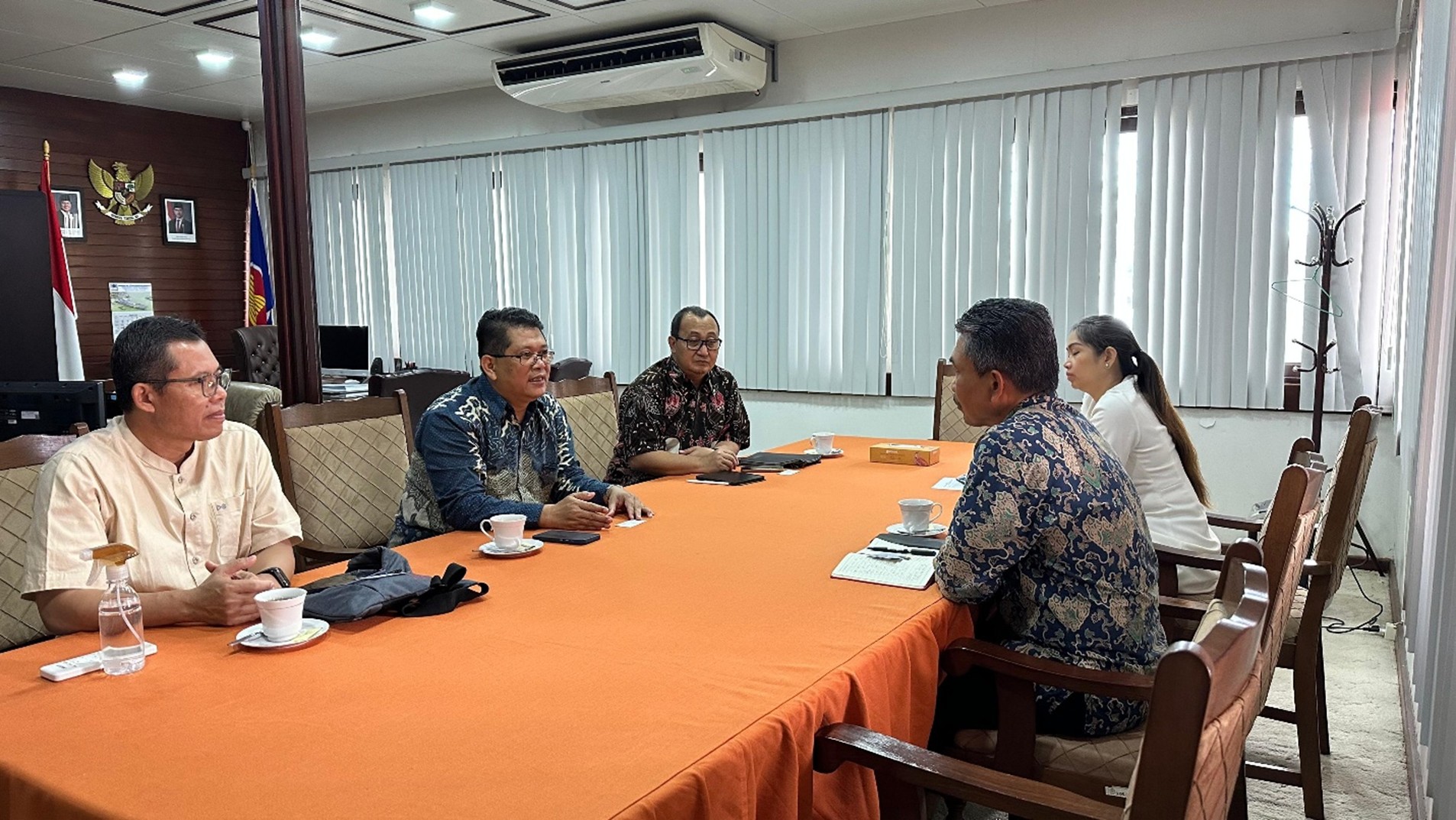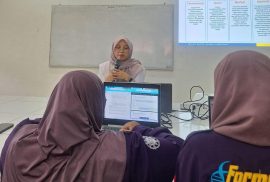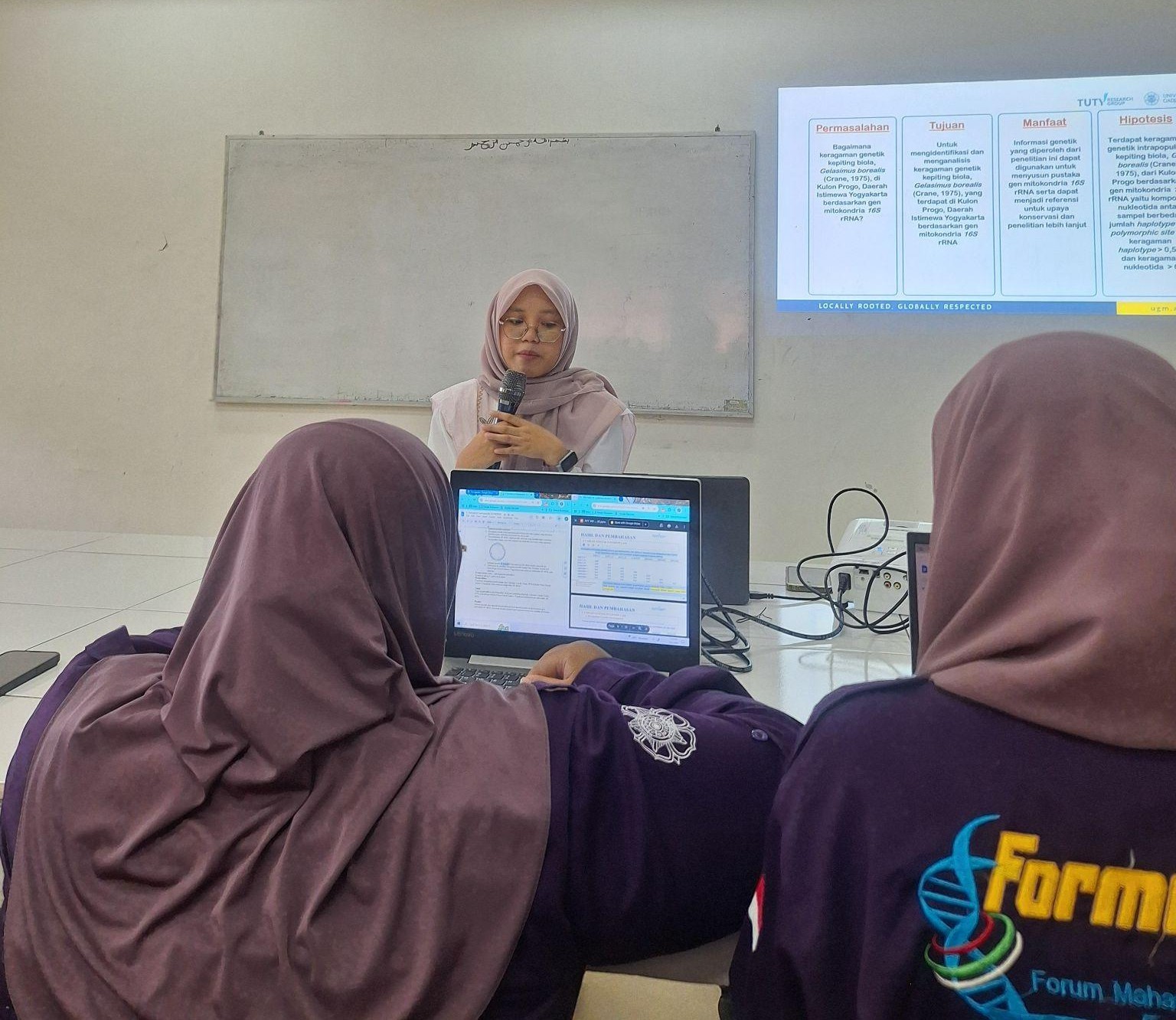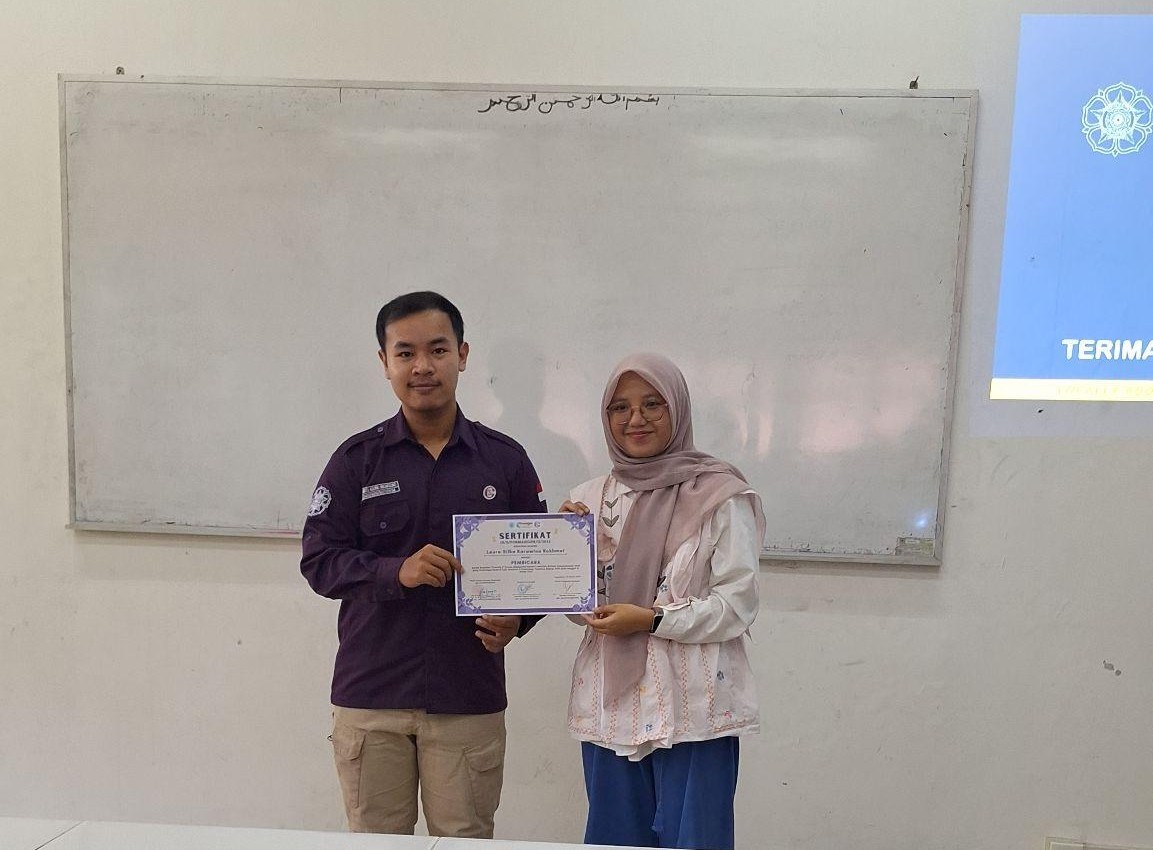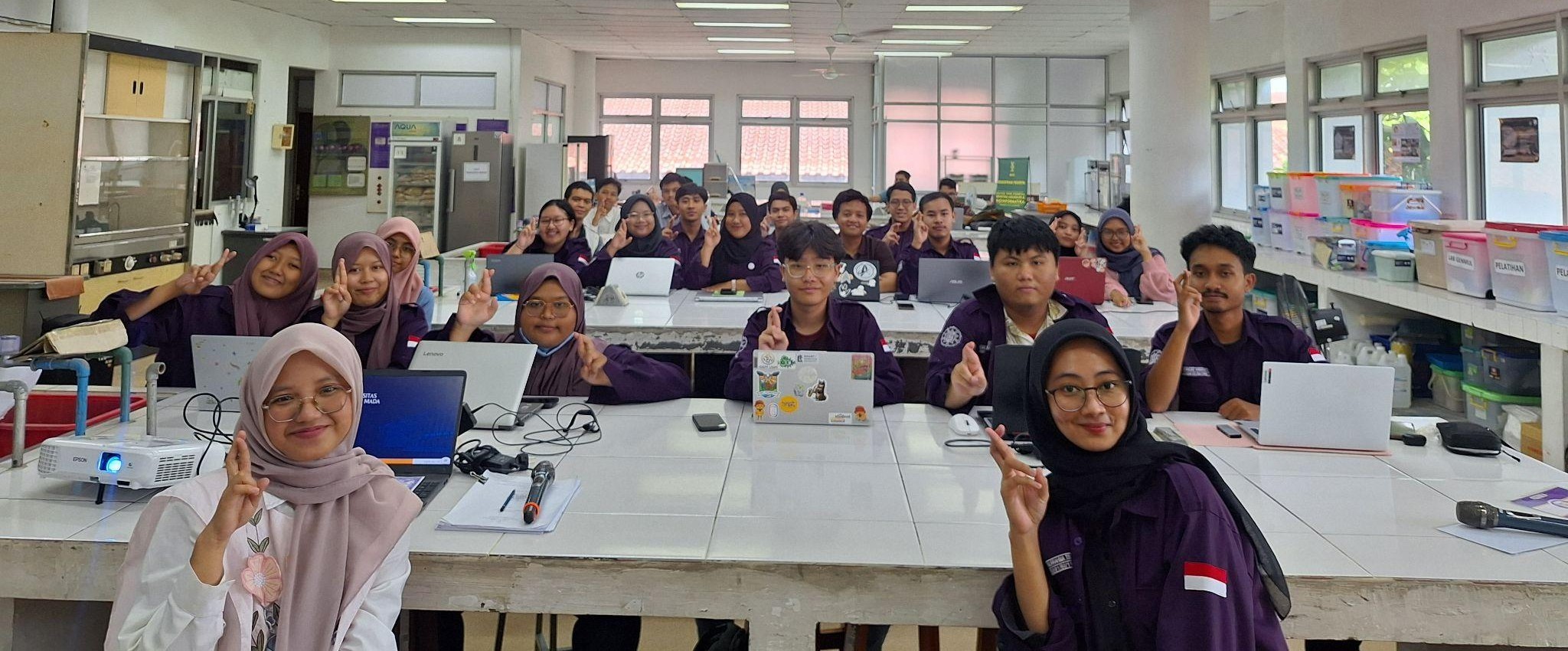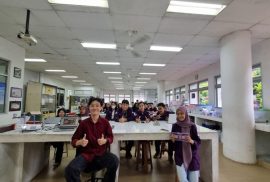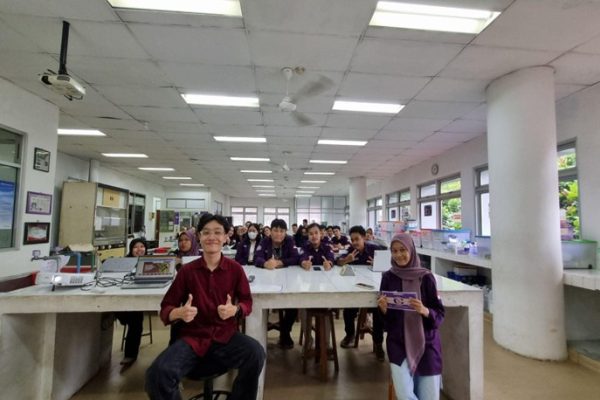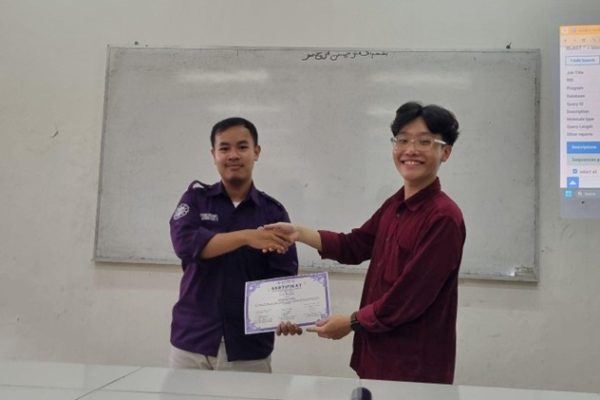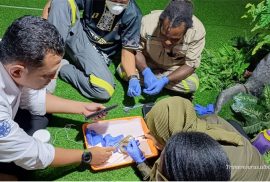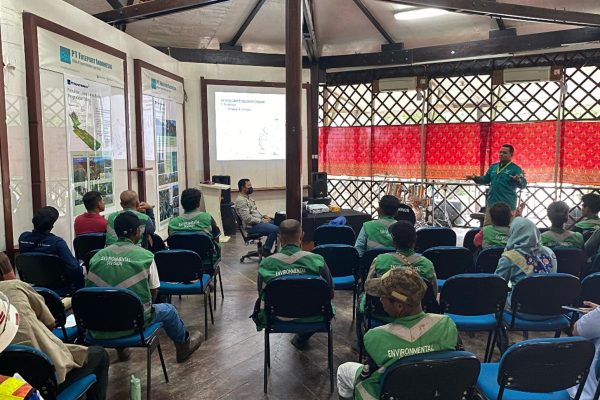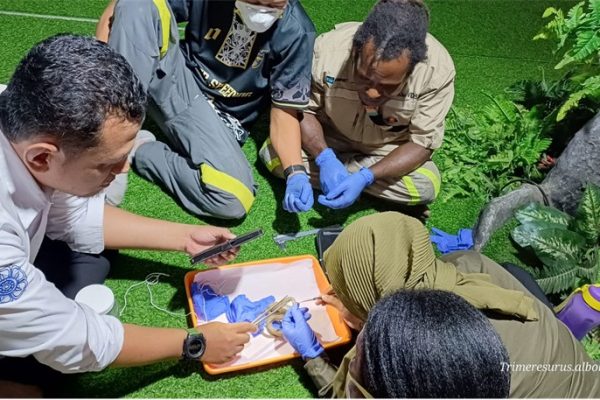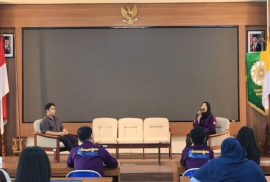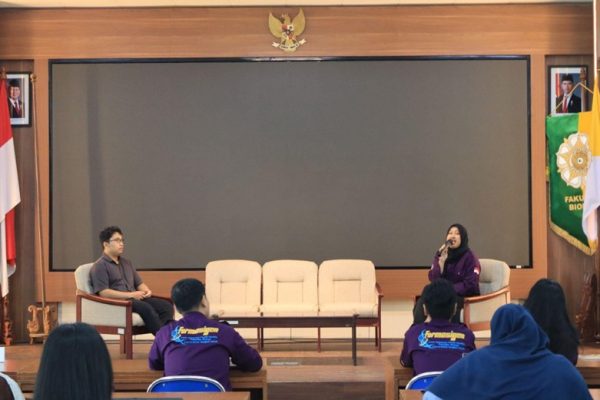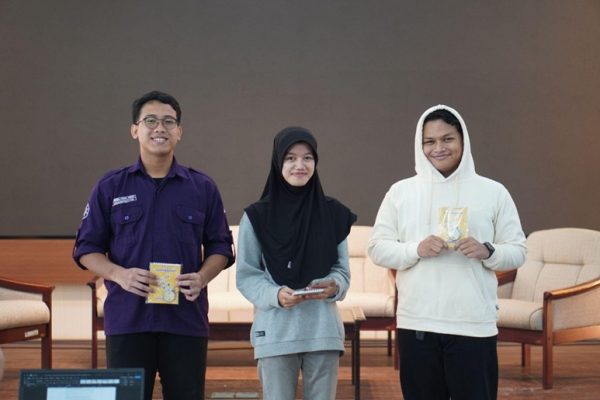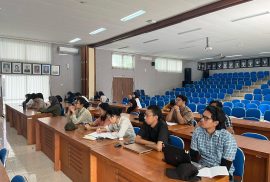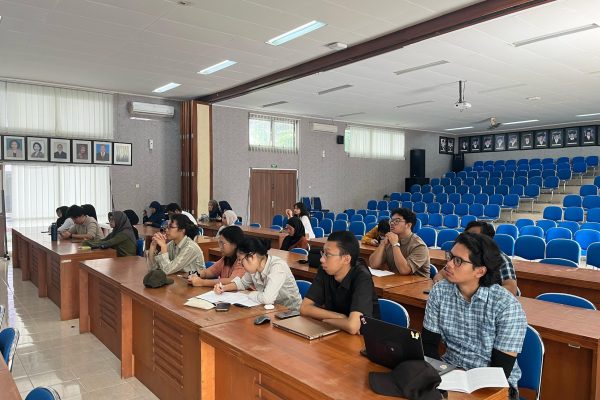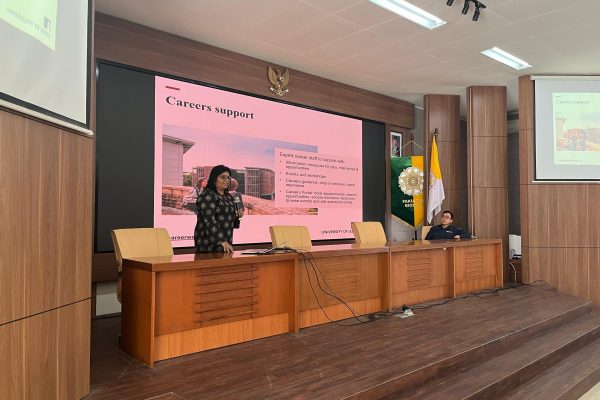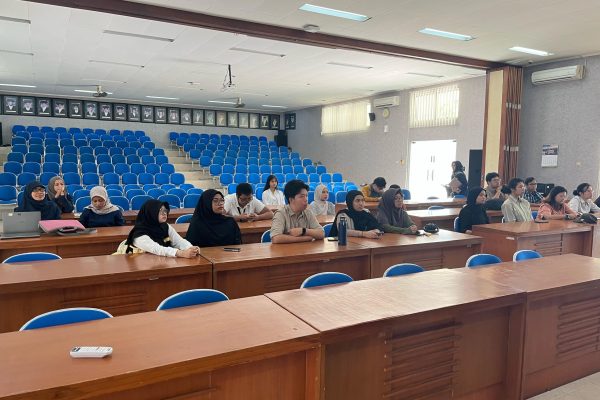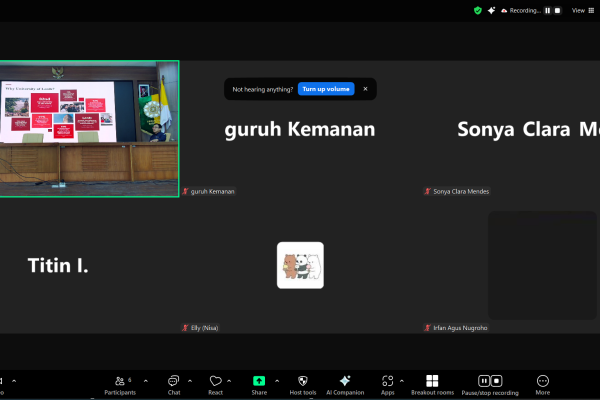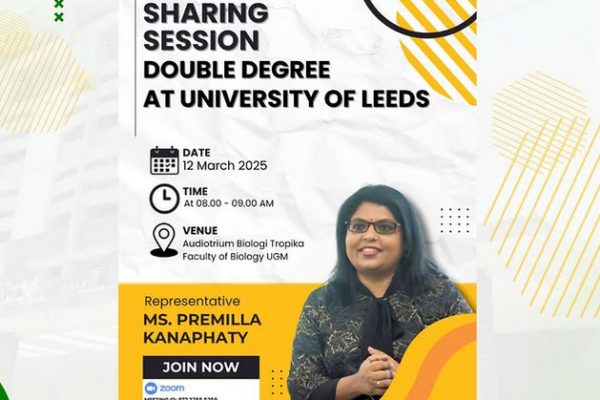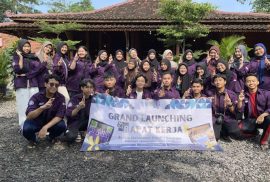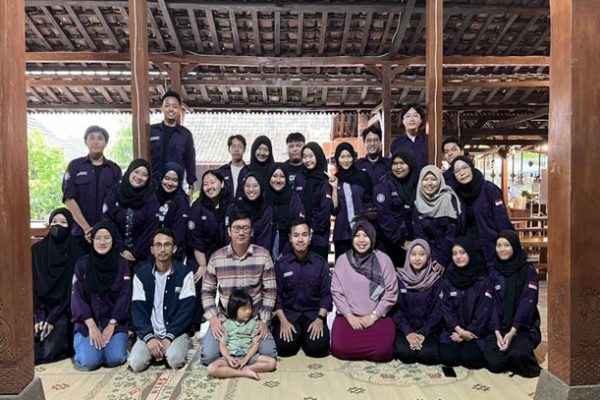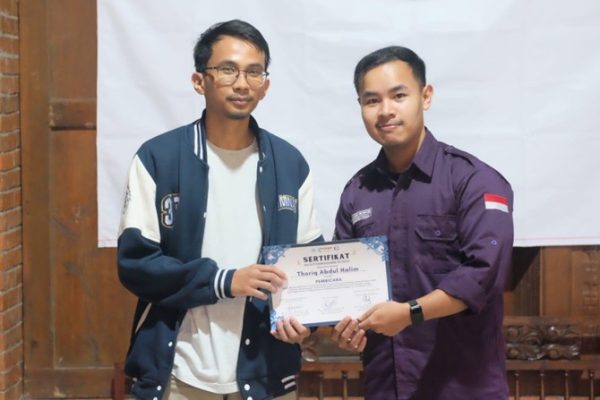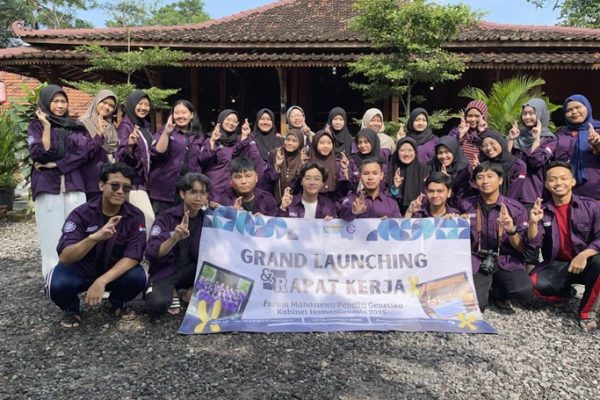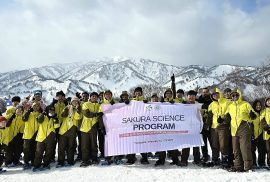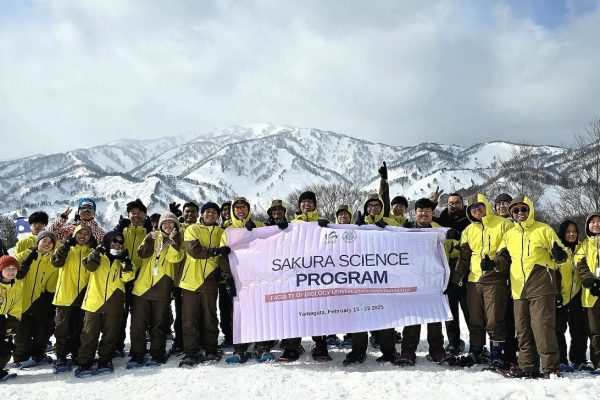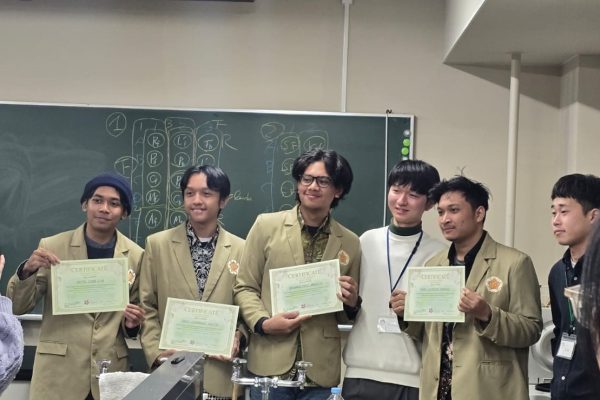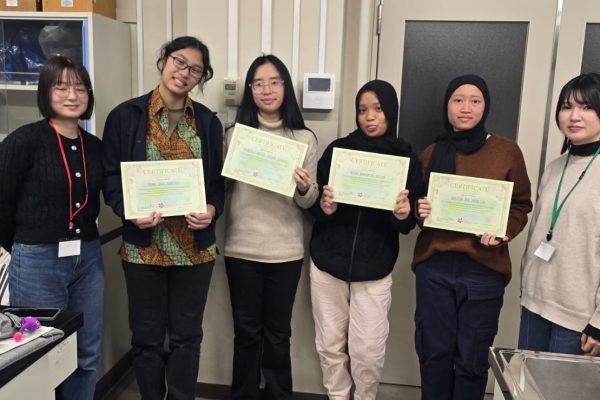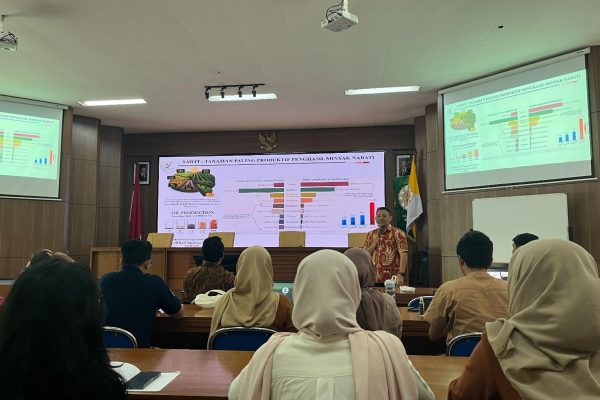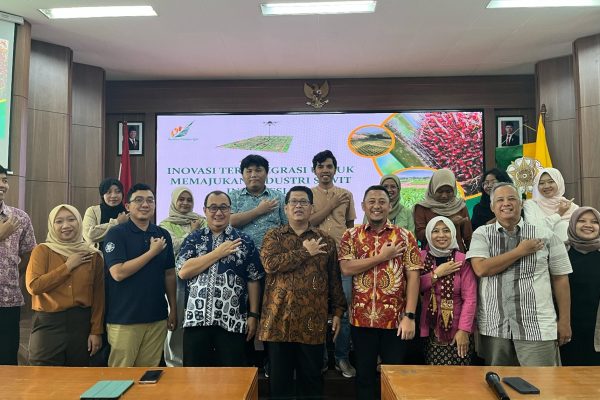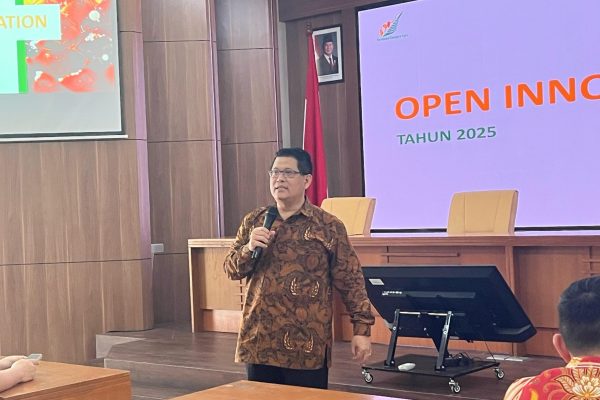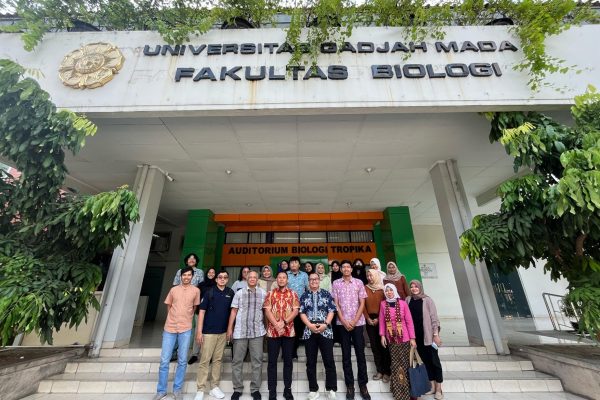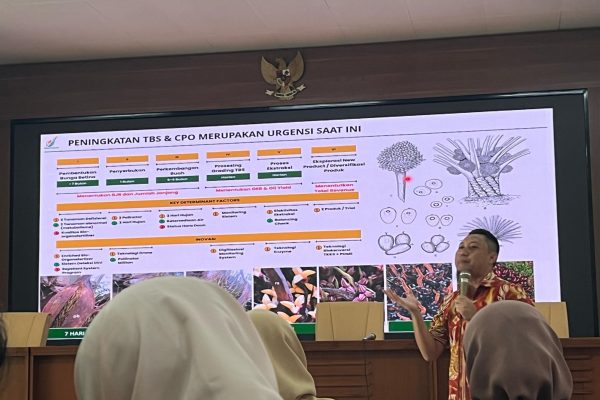Arsip:
SDGs 16 : Guarantee Peace
Paramaribo, April 15, 2025 – The delegation of the Faculty of Biology, Universitas Gadjah Mada (UGM) continued the second day of their official visit to Suriname with a number of strategic agendas to expand the international cooperation network and establish friendship with the Javanese diaspora in the country. The delegation was led by the Dean of the Faculty of Biology, Prof. Dr. Budi Setiadi Daryono, accompanied by Dr. Slamet Widiyanto (Vice Dean for Finance, Assets, and Human Resources Affairs), and Dr. Eko Agus Suyono (Vice Dean for Research, Community Service, Collaboration and Alumni Affairs).
The agenda of the second day of the visit began with a meeting with Dr. Marciano Dasai, Minister of Spatial Planning and Environment of Suriname who is also a UGM alumnus. This meeting discussed the potential for cooperation in sending Surinamese staff for further studies at the Faculty of Biology UGM. In addition, both parties also explored research and development collaboration in various strategic areas such as food security, biodiversity database management, carbon credit, bioprospecting, renewable energy, agriculture, and climate resilience. In the afternoon, the delegation met with Surinamese parliamentarian Evert Legiran Kerto, as well as the management of the Pertjaja Luhur Party, the largest Javanese-based party in Suriname. The discussion focused on opportunities for cooperation in human resource development and technology transfer, as a form of synergy between Indonesian higher education institutions and elements of the Javanese community in Suriname.
The visit continued to Saramakka District, about 50 km from the capital city of Paramaribo, to meet with Javanese community leaders, namely Mr. H. Subari and his family: Mr. David K. Karso and Mrs. Noer Latifah Laily. This meeting was an important event to introduce the Undergraduate and Postgraduate programs of the Faculty of Biology UGM, as well as to strengthen relations between UGM and the Javanese diaspora community.
Previously, the delegation was also accompanied by staff from the Indonesian Embassy in Suriname, Mrs. Anissa and Mrs. Risa, during a visit to Mrs. Carla Grossman, Director of the QSI International School of Suriname. This visit aims to promote the International Program (IUP) of the Faculty of Biology UGM to prospective international students.
This visit is part of the Faculty of Biology UGM’s efforts to encourage the internationalization of higher education and strengthen Indonesia’s role in the global arena through cross-country educational and research cooperation, especially with the Indonesian diaspora community.
Through this initiative, it is hoped that the bilateral relations between Indonesia and Suriname can be strengthened, not only in the context of education, but also in the economic, social, and cultural sectors. This initiative also prioritizes the principles of sustainable development which are part of a shared commitment to the SDGs, especially support for inclusive education for all groups (SDG 4 and 10), as well as support for research that contributes to environmental conservation and handling climate change (SDG 13).
Paramaribo, April 14, 2025 – In an effort to expand international networks and strengthen educational relations between countries, the delegation of the Faculty of Biology, Universitas Gadjah Mada (UGM) consisting of Prof. Dr. Budi Setiadi Daryono, M.Agr.Sc. as Dean, Dr. Slamet Widiyanto, M.Sc. Vice Dean for Finance, Assets, and Human Resources Affairs, and Dr. Eko Agus Suyono, M.App.Sc. as Vice Dean for Research, Community Service, Collaboration, and Alumni Affairs, made an official visit to the Embassy of the Republic of Indonesia (KBRI) in Paramaribo, Suriname.
The delegation was warmly welcomed by the Principal Authorized Representative of the Indonesian Embassy in Suriname, Mr. Sadikin, along with staff, namely Mrs. Anisa and Miss Risa. In the productive discussion, several important agendas were discussed, including the promotion of scholarship programs for students, teachers, lecturers and government staff from Suriname to pursue undergraduate and postgraduate studies at the Faculty of Biology UGM.
Suriname has strong historical ties with Indonesia. More than 135 years ago, the Javanese people first migrated to Suriname as contract workers. Today, their descendants are an important part of the country’s social and political life, although many of them are no longer fluent in Javanese.
Efforts to re-establish cooperation in the fields of education and culture have actually been carried out since the New Order era under the leadership of President Soeharto. Now, this spirit has been renewed by opening up collaboration spaces not only in the fields of education and culture, but also expanded to the economic, industrial, and environmental sectors.
Suriname is also known as a country with zero carbon emissions (zero CO₂ emissions) and as the most forested country in the world. In fact, there is one province whose entire territory is forest so that it does not have its own capital city, and must be represented by the country’s capital. This opens up great potential for cooperation in the fields of biodiversity and conservation as well as climate change, including CO₂ capture which is the main strength of the Faculty of Biology UGM.
On this occasion, the UGM delegation also met with a member of parliament of Javanese descent, Mr. Moertabat Wanica Sidik who is the older brother of the Surinamese Ambassador to Indonesia. He expressed his full support for efforts to increase cooperation that can help prepare Suriname’s human resources, especially the young generation of Indonesian descent, to be able to fill strategic positions in government and other sectors. Currently, there are at least three ministers and several directors who are of Javanese descent and some of them are UGM alumni.
Through this initiative, it is expected to strengthen bilateral relations between Indonesia and Suriname, not only in the context of education, but also in the economic, social, and cultural sectors. This initiative also prioritizes the principles of sustainable development which are part of a shared commitment to the SDGs, especially support for inclusive education for all groups (SDG 4 and 10), as well as support for research that contributes to environmental conservation and handling climate change (SDG 13).
On Friday, 21st of March 2025 at 1-2.30 PM, Gentalk 4 was held in the Laboratory of Genetics and Breeding, Faculty of Biology UGM. This program is targeted for all Formasigen members and Biology UGM students in general. Mrs. Ganies Riza Aristya, S.Si., M.Sc., Ph.D., as Formasigen’s supervisor lecturer, also attended this program. Gentalk is an active discussion and sharing session between alumni or senior student and Formasigen’s member about the undergraduate thesis they are working on. In this Gentalk edition, the speaker is Laura Silka Karawina Rokhmat, Faculty of Biology UGM students batch 2021 under the supervision of Prof. Dra. Tuty Arisuryanti, M.Sc., Ph.D for her undergraduate thesis.
This program started with an opening from the Master of Ceremony, Ghefira Nurrahima Tsuraya, as a part of the Public Relation Division of HomeoGenesis Cabinet, followed by an opening speech by Mrs. Ganies Riza Aristya, S.Si., M.Sc., Ph.D. as the supervisor lecturer of Formasigen. The next activity is a presentation about “Genetic Variation Northern Calling Fiddler Crab, Gelasimus Borealis (Crane, 1975), from Kulon Progo, D.I.Yogyakarta Using 16s rRNA Mitochondrial Gene”. In this session, she shares about identification methods and genetic variation analysis of Northern Calling Fiddler Crab, Gelasimus Borealis, using 16s rRNA mitochondrial gene. After that, is the Q&A session followed by closing from the master of ceremony. Through Gentalk, we hoped that this could be a good start to create a vessel for an interesting and beneficial discussion. We also hope that this program can give a better understanding about all the research done by all the lecturers and their students in the Laboratory of Genetics and Breeding, Faculty of Biologi UGM. This research also hoped to help actualize the 15th Sustainable Development Goals (SDGs) that is Life On Land.
[Author: Formasigen]
On Friday, 14th of March 2025 at 1-2.30 PM, Gentalk 3 was held in the Laboratory of Genetics and Breeding, Faculty of Biology UGM. This program is targeted for all Formasigen members and Biology UGM students in general. Mrs. Ganies Riza Aristya, S.Si., M.Sc., Ph.D., as Formasigen’s supervisor lecturer, also attended this program. Gentalk is an active discussion and sharing session between alumni or senior student and Formasigen’s member about the undergraduate thesis they are working on. In the third Gentalk of this year, the speaker is Tan Rendy, Faculty of Biology UGM students batch 2022 under the supervision of Mrs. Ganies Riza Aristya, S.Si., M.Sc., Ph.D. for his undergraduate thesis.
This program started with an opening from the Master of Ceremony, Winda Lutfiana Hafidz, as a part of the Public Relation Division of HomeoGenesis Cabinet. The next activity is a presentation from Rendy about “ Genetic Transformation of Plants Using Agrobacterium tumefaciens”. In this session, Rendy shares his experience during the IISMA program in the UBC (University of British Columbia) surrounding genetic engineering including methods used in doing genetic transformation for the purpose of plant breeding. In this session, Rendy also talked about various websites to search for gene sequences such as Phytozone and also websites for designing primer such as Primer3Plus. He also shared how to verify the validity of the primer we designed using websites such as NCBI. In NCBI there is a feature called BLAST to check if the designed primer is specific to a certain gene. After that, is the Q&A session followed by closing from the master of ceremony. Through Gentalk, we hoped that this could be a good start to create a vessel for an interesting and beneficial discussion. We also hope that this program can give a better understanding about all the research done by all the lecturers and their students in the Laboratory of Genetics and Breeding, Faculty of Biologi UGM. This research also hoped to help actualize the second Sustainable Development Goals (SDGs) that is no hunger.
[Author: Formasigen]
Dr. Rury Eprilurahman, S.Si., M.Sc., lecturer and researcher from the Animal Systematics Laboratory, Faculty of Biology, Universitas Gadjah Mada, conducted a training program on Wildlife Identification Techniques for staff members of the Biodiversity Section, Environmental Division of PT Freeport Indonesia from March 17 to 22, 2025.
Staff from the Biodiversity Unit attended the training, which aimed to strengthen their capacity to identify four major terrestrial vertebrate taxa: amphibians, Reptiles, Birds (Aves), and Mammals. The program combined in-class theoretical sessions with hands-on field practices conducted in PT Freeport Indonesia’s operational area.
In addition to taxonomy and morphological identification, the participants were introduced to wildlife sampling techniques, scientific photography, and specimen preservation methods, including wet preservation and basic taxidermy. The training was delivered interactively, with participants showing great enthusiasm during both practical sessions and scientific discussions.
The training reflects the Faculty of Biology UGM’s commitment to biodiversity conservation, particularly in Papua, which is recognized as one of Indonesia’s most biologically rich regions.
This training aimed to equip biodiversity staff with the skills to accurately identify and document wildlife within the working area, which will support evidence-based conservation efforts.
This activity also aligns with Universitas Gadjah Mada’s broader mission to support the achievement of the Sustainable Development Goals (SDGs), particularly SDG 15 (Life on Land), which focuses on protecting, restoring, and sustainably managing terrestrial ecosystems, and SDG 4 (Quality Education) by enhancing human resource capacity in the life sciences.
The training program serves as a collaborative engagement model between academia and industry, advancing sustainable, science-based environmental management.
On Sunday, 9th of March 2025, Open House Formasigen 2025 was held in the Auditorium of Tropical Biology, Faculty of Biology, UGM. This event was held for all Formasigen’s members, study group and organisation delegates, and all faculty of biology’s students. This event was attended by Mrs. Ganies Riza Aristya, S.Si., M.Sc., Ph.D., as Formasigen’s supervisor lecturer. Open House Formasigen 2025 is aimed to introduce the cabinet’s ministry and program for the following year to all related student organisations, especially organisation of Faculty of Biology UGM. Beside that, this event also used to open a discussion forum and partnership opportunity with external organisation. This event had 2 main session that are program socialisation of HomeoGenesis cabinet and talkshow from alumni.
The event was started by socialisation of this cabinet’s fundamental work approach by the chairman and vice chairman of Formasigen 2025 cabinet HomeoGenesis. The program socialisation carried on by program of each division from each head of division. After each presentation, the audience was given room to discuss and having QnA session. The next activity was a little ice breaking session followed by talkshow from Formasigen’s alumni. The main topic of the talkshow was the century of biology from Adib Fakhruddin Yusuf, S.Si., M.Sc. as the speaker. After that, the speaker was given souvenir from Formasigen’s current chairman followed by documentation. All guest that attend Open House were also asked to give their feedback and hopes for Formasigen 2025. With the realisation of this event, we hoped that all assigned program can be held without any significant challenge and the relation of Formasigen and external party can be better and can lead to more opportunity.
[Author: Formasigen]
Yogyakarta, March 12, 2025 – Faculty of Biology Universitas Gadjah Mada (UGM) once again held a Sharing Session event regarding the Double Degree program with the University of Leeds, UK. This event was held on Wednesday, March 12, 2025 and aimed to provide students with a deeper understanding of international study opportunities through the Double Degree program.
This event was hosted by the Coordinator of the International Undergraduate Program, Tyas Ikhsan Hikmawan, S.Si., M.S., Ph.D., who explained various aspects of the Double Degree program and the benefits that can be obtained by UGM students who participate in the program. On this occasion, a representative from the University of Leeds, Premila Kanaphaty, was also present to provide further information regarding the Leeds campus, available facilities, and registration procedures for participating in the Double Degree program.
“This Double Degree Program is part of the collaboration between the Faculty of Biology UGM and the University of Leeds, which allows students to obtain degrees from two leading international universities,” said Dr. Tyas in his speech.
Premila Kanaphaty also gave an interesting presentation about campus life in Leeds, as well as various facilities that support students’ success in pursuing their education. In addition, she also explained the registration procedure and requirements to be able to participate in the Double Degree program.
Since this collaboration began, the Faculty of Biology UGM has sent seven students to participate in the Double Degree program at the University of Leeds, who are currently continuing their studies there. The enthusiasm of UGM students for this program is very high, as evidenced by the large number of participants who attended and actively asked questions during the sharing session.
This Double Degree Program provides a golden opportunity for students to broaden their horizons and develop their academic abilities in an international environment, while opening up wider career opportunities in the future.[aulia]
On Saturday and Sunday, 22nd to 23rd of February 2025, had been held Grand Launching x Makrab at Sokkyo Ramen & Homestay. This event was held for all Formasigen’s members. This event was attended by Mrs. Ganies Riza Aristya, S.Si., M.Sc., Ph.D., as Formasigen’s supervisor lecturer and Mr. Indra Lesmana, S.Si., M.Sc. as one of the lecturer from the Laboratory of Genetics and Breeding Faculty of Biology UGM. Grand Launching x Makrab is aimed to introduce the cabinet’s ministry and program for the following year while also bringing the team closer. This event consisted of 4 main events that included a sharing session with the lecturers from Laboratory of Genetics and Breeding Faculty of Biology UGM, pre-seminar class, cabinet meeting, and other bonding activities.
The event was started by sharing session with Mrs. Ganies Riza Aristya, S.Si., M.Sc., Ph.D., as Formasigen’s supervisor lecturer and Mr. Indra Lesmana, S.Si., M.Sc. as one of the lecturer from the Laboratory of Genetics and Breeding Faculty of Biology UGM about Formasigen’s history and their Formasigen experience. The next activity was pre-seminar class with Thoriq Abdul Halim, Biology UGM student batch 21, as the presenter. Pre-seminar class is a session where a senior student presents tips and tricks about preparing and presenting proposal for undergraduate thesis to the new Formasigen members. After pre-seminar class, the next activity was a cabinet meeting where Denianto Agung Wicaksono, as the Chairman of Formasigen 2025, presented all programs plan for the following year to all Formasigen members. After Grand Launching x Makrab was held this year, we hoped that all Formasigen 2025 members could get to know each other better and be closer personally. It’s also hoped that all members can understand the history of Formasigen and the plan for the following year better after this sharing session. Pre-seminar class is also hoped to prepare all members for their undergraduate thesis proposal so that they can be more prepared and produce a better result.
[Author: Formasigen]
Yogyakarta, February 26, 2025 – Sixteen students from the Faculty of Biology, Universitas Gadjah Mada (UGM), participated in the Sakura Science Program at the Faculty of Science, Yamagata University, Japan. The program took place from February 15 to 23, 2025.
Accompanied by Prof. Dr. Bambang Retnoaji, Vice Dean for Academic and Student Affairs, the students began their activities with a field trip to the Mt. Gassan region to observe the environmental conditions covered in heavy snow in northern Japan. Led by Prof. Jun Yokoyama, the students were also taken on a tour of Yamagata City.
The following day, February 17, 2025, the students attended a series of lectures on biodiversity and recent advances in biological studies delivered by several professors, including Dr. Taisuke Kanao on “Termitophily: Unique insect diversity in termite nests”, Prof. Naoyuki Fujiyama on “Diversity of Asian insects with particular attention to researches on herbivorous ladybird beetles”, and Prof. Yutaka Miyazawa on “How do plant roots respond to water deficit? : Physiological and molecular biological dissection of root hydrotropism”.
From February 18 to 21, 2025, the students conducted a series of practical activities, including material selection for experiments, DNA isolation from organisms, DNA sequencing, and data analysis from PCR results. The outcomes of these activities were then compiled into reports and presented.
This program not only focused on academic aspects but also provided opportunities for students to learn about Japanese culture by visiting the Yamagata Prefectural Museum.
The Sakura Science Program aims to strengthen cooperation and knowledge exchange between the Faculty of Biology, UGM, and Yamagata University. This activity is expected to broaden students’ knowledge and insights in biology and strengthen the Faculty of Biology’s international network.
Yogyakarta, 20 February 2025 , PT Bumitama Gunajaya Agro (BGA) continues to demonstrate its commitment to advancing innovation within Indonesia’s palm oil sector through the implementation of its 2025 Open Innovation Program. The program was formally introduced during a socialization event held at the Tropical Biology Auditorium, Faculty of Biology, Universitas Gadjah Mada (UGM), and was attended by faculty members and students.
This activity also marked the continuation of collaboration between PT BGA and the Faculty of Biology UGM in the previous year. In his opening address, Dean of the Faculty of Biology, Prof. Dr. Budi Setiadi Daryono, M.Agr.Sc., underscored the strategic importance of partnerships between academia and industry in enhancing the relevance and quality of research and innovation. He expressed appreciation for the opportunity to strengthen this partnership, noting that he was a recipient of the BGA Innovation Grant in the previous cycle.
Dr. Ade Agung Laksono, Head of the Bumitama Academy Department at PT BGA, delivered the keynote presentation titled “Integrated Innovation for Advancing the Indonesian Palm Oil Industry.” In his presentation, Dr. Ade reaffirmed BGA’s dedication to facilitating broader participation by Indonesian researchers in addressing practical challenges within the national palm oil industry.
“BGA operates primarily in upstream plantation management. Through this research grant initiative, we seek to explore the potential of Indonesian researchers in delivering applied solutions to key issues in the palm oil sector,” Dr. Ade stated.
Among the critical challenges highlighted were the decline in production capacity due to pest outbreaks and inefficiencies in the processing of crude palm oil into refined products. To address these issues, BGA is offering researchers access to plantation land, thereby providing an opportunity to apply their research’s findings.
Among the critical challenges highlighted were the decline in production capacity due to pest outbreaks and inefficiencies in the processing of crude palm oil into refined products. To address these issues, BGA is offering researchers access to plantation land, thereby providing an opportunity to apply their research’s findings.
In addition to faculty researchers, the 2025 Open Innovation Program is also open to university students across Indonesia. This initiative is expected to further promote research-based innovation originating from academic institutions such as the Faculty of Biology UGM, contributing meaningfully to the development of the national palm oil industry. Furthermore, it aligns with key objectives of the Sustainable Development Goals (SDGs), particularly SDGs No. 4 on Quality Education and SDGs No.17 on Partnerships for the Goals.
Through this initiative, PT BGA aspires to strengthen the integration between higher education institutions and industry, while fostering impactful and solution-oriented research in the fields of agriculture and plantation science in Indonesia.

